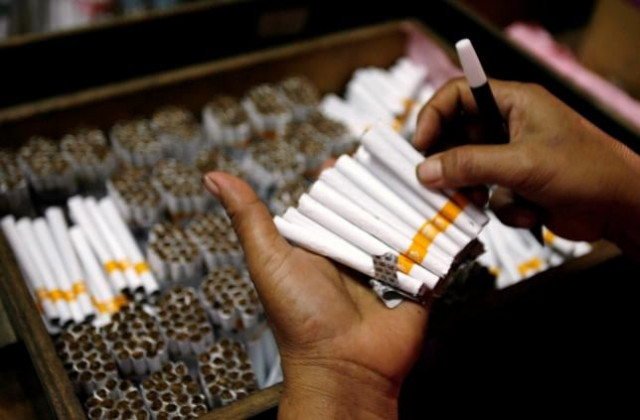Disarray in tobacco taxes: a physician’s perspective
Despite positive steps, motivation for implementation of tobacco control measures may be waning

Tobacco is the leading cause of preventable deaths around the world as its use kills over 8 million people annually. This public health emergency is of pandemic proportions in low- and middle-income countries such as Pakistan, which makes up 80% of tobacco users worldwide due to partial or no implementation of tobacco control measures.
In response to the globalisation of the tobacco epidemic, the Framework Convention on Tobacco Control (FCTC), the first and largest international treaty addressing this issue, was signed under the auspices of World Health Organisation in 2003. The FCTC affirms the right of all people to the highest standard of health by protecting them from tobacco exposure. To achieve this, it legally binds the governance of tobacco production, sale, distribution, advertisement and taxation.
Pakistan ratified the FCTC in 2004 and became committed to a national-level approach aimed at tobacco control efforts. In an impact report prepared by the WHO FCTC in 2018, the country’s key milestones were appreciated such as relevant legislature, Federal Excise Act and Rules and subsequent introduction of a federal Tobacco Control Cell for further policy development and implementation. Legal precedence in the form of The Cigarettes (Printing of Warning) Ordinance, 1979 was followed by the Prohibition of Smoking and Protection of Non-smokers Health Ordinance, 2002 which deals with measures on public smoking and sales to minors. The Prohibition of Sale of Cigarettes to Minors Rules, approved in 2010, empowers the Federal Board of Revenue to levy duties on manufacturers and retailers. A further aspect of this law, the recently updated SRO 72 (1)/2020 introduced further restrictions on tobacco advertisement, promotion and sponsorship. In addition to previous limits imposed on television, radio, print media and billboards under the original 2003 ordinance, it has now placed a ban on all types of advertisement inside and outside the point of sale, banning display of tobacco products.
Despite all these positive steps, the motivation for implementation of tobacco control policy in Pakistan may be waning. In 2018, the WHO specifically called upon the government of Pakistan to simplify tobacco taxation by withdrawing its ‘third tier’. This enabled the most commonly sold cigarette brands to be placed in the lowest tax bracket and it was further exacerbated by lowering of excise duty per pack. A 10% increase in prices would reduce tobacco use in teenagers by 18.3%. The conflict of interest with the Pakistan Tobacco Board recording over 50,000 hectares of tobacco producing area, much of which is exported, requires resolution. What is more worrying is the fact that Pakistan was identified as a business hub for an international tobacco company to serve the Asia Pacific and Middle Eastern region in late 2020. This poses further socio-economic and political challenges for tobacco control efforts.
Pakistan is particularly vulnerable to weak tobacco control implementation as the impact is most sensitively seen in the country’s youth. About 1,200 children in Pakistan between the age of 6 to 15 years start smoking everyday, whilst 34% of males and 6% of females start consuming tobacco products from the age of 15 and above. In a young country such as ours, a magnified impact will be seen as this population ages and develops myriad of health problems associated with tobacco, including chronic lung and heart disease and almost all cancers. In the absence of changes in tobacco taxation for four years, policy planning to influence tobacco consumption and meet international targets needs urgent re-evaluation.
Dr Saima Saeed is a Senior Consultant Pulmonologist and Director of the Lung Health Program for Indus Hospital & Health Network.
Published in The Express Tribune, October 11th, 2021.
Like Business on Facebook, follow @TribuneBiz on Twitter to stay informed and join in the conversation.



















COMMENTS
Comments are moderated and generally will be posted if they are on-topic and not abusive.
For more information, please see our Comments FAQ